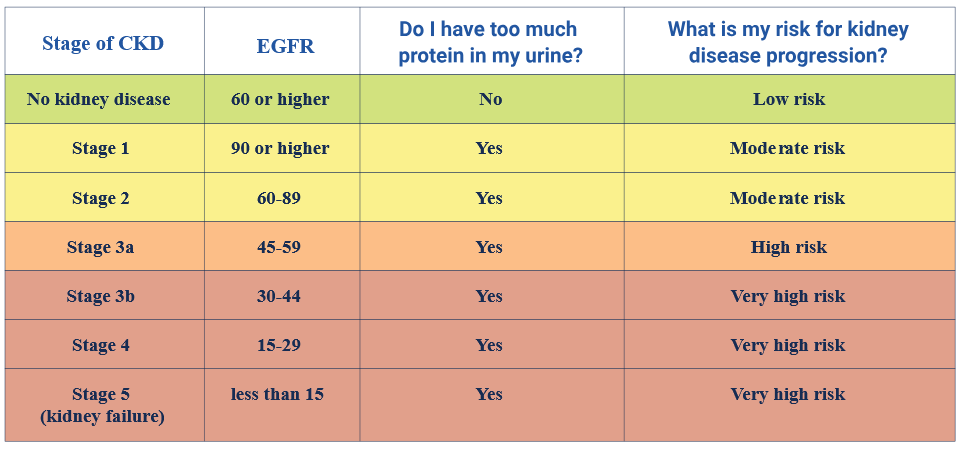
Chronic Kidney Disease (CKD)
Share
Chronic Kidney Disease (CKD) is a long-term condition in which the kidneys gradually lose function over time. Healthy kidneys filter waste and excess fluids from the blood, which are then excreted in urine. In CKD, this filtering process becomes impaired, leading to the buildup of waste and fluid in the body, which can cause serious health problems.
Diabetes and high blood pressure are the most common causes of chronic kidney disease and kidney failure. Keep a healthy blood sugar level and a healthy blood pressure to slow kidney damage and prevent or delay kidney failure.
Just because you were diagnosed with kidney disease does not mean that it will progress to kidney failure. Although damage cannot be fixed, you can take steps to keep your kidneys as healthy as possible for as long as possible and slow down the progression of your kidney disease.
Progression is the term used to describe kidney disease moving into higher stage numbers as it gets worse. The higher the number, the worse the damage and the less your kidneys work.
There are 5 stages of chronic kidney disease (CKD), from very mild kidney damage in stage 1 to complete kidney failure in stage 5. The stages of kidney disease are based on the estimated glomerular filtration rate, or eGFR number, which measures how well your kidneys filter waste and extra fluid from your blood.
What you eat and drink affects your health. Eating a healthy portion of kidney-friendly foods helps keep your kidneys healthy for as long as possible. Making changes to the way you eat and the amount of fluids you consume may help you prevent further damage to your kidneys and slow down the progression to kidney failure.
Kidney-friendly eating tips for every stage of kidney disease:
1. Avoid added salt to keep a healthy blood pressure and prevent fluid buildup in your body.
2. Eat less fat to stay at a healthy weight and lower your risk for heart disease.
3. Avoid excess sugar to prevent unwanted weight gain and high blood sugar.
4. Eat plenty of fruits and vegetables.
5. Choose whole grains for carbs that are full of nutrients and give your body energy.
6. Ask your doctor and dietitian how much lean protein you should have each day.
7. Ask your doctor and dietitian how much fluid you should have each day.
8. Ask your doctor and dietitian about your potassium and phosphorus levels. Meet with a dietitian to help you create a kidney-friendly food and fluid plan that works for you.
Source: American Kidney Fund
